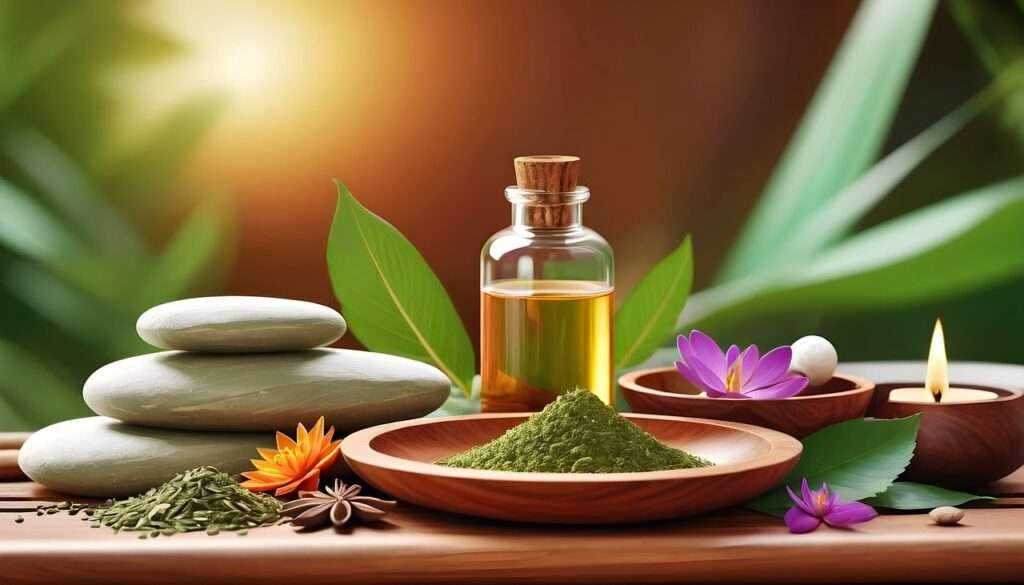Introduction
Masturbation, the once-taboo act of self-pleasure, has increasingly become a topic of open discussion in recent years. As we embrace a more sex-positive society, it’s time to shed light on this natural and healthy aspect of human sexuality. In this article, we’ll embark on a thought-provoking journey, exploring the multifaceted world of masturbation, its benefits, debunking persistent myths, and addressing common concerns with a compassionate and informative approach.
The Positive Impact on Physical and Mental Well-being
Unleashing a Wave of Endorphins
Imagine a natural remedy for stress relief and improved mood, right at your fingertips (pun intended). Masturbation triggers the release of endorphins, those blissful chemicals that act as the body’s natural pain relievers and mood boosters. By indulging in self-pleasure, you’re essentially giving yourself a dose of happiness, allowing you to unwind and rejuvenate both physically and mentally.
Boosting Self-Esteem and Body Positivity
In a world that often promotes unrealistic body standards, masturbation can serve as a powerful tool for cultivating self-love and acceptance. Through the act of self-exploration and pleasure, individuals can develop a deeper appreciation for their bodies, embracing their unique sensuality and reinforcing positive self-image. This newfound confidence can radiate into other aspects of life, fostering a healthier and more empowered mindset.
Achieving Sweet, Restorative Slumber
Who needs counting sheep when you have a natural sleep aid at your disposal? After reaching the pinnacle of pleasure, the body releases a cocktail of hormones, including the infamous sleep-inducing hormone, prolactin. This post-orgasmic bliss can lead to a deeper, more restful night’s sleep, allowing you to wake up refreshed and energized for the day ahead.

Debunking Misconceptions About Masturbation
Shattering the Shroud of Shame
For far too long, societal stigma has cast a shadow over the act of masturbation, fueling feelings of guilt and shame. However, it’s time to break free from these outdated notions and embrace self-pleasure as a natural and healthy aspect of human sexuality. By normalizing open discussions about masturbation, we can foster a more sex-positive culture and empower individuals to embrace their desires without judgment.
Separating Fact from Fiction: Addressing Common Myths
Several common masturbation myths have yet to be confirmed scientifically.
For instance, masturbating does not result in:
- Infertility and dehydration
- Hormonal imbalances, changes in penile size/shape, and decreasing sperm count can all impact fertility.
- Vision loss
- Acne, hairy palms.
- Erectile dysfunction.
- Low libido.
Some people assume that masturbation has a detrimental impact on love relationships or indicates that one spouse is sexually dissatisfied.
While excessive masturbation can be hazardous, many people discover that masturbating alone or with their partner can improve their sex life.
Furthermore, masturbation may be associated with a number of health advantages and is regarded as one of the safest types of sexual activity because it does not increase the risk of pregnancy or STIs.
Exploring Potential Side Effects and Safety Considerations
Maintaining Healthy Boundaries
While masturbation is generally safe and enjoyable, it’s important to establish healthy boundaries and practice moderation. Excessive or compulsive masturbation can lead to physical discomfort, such as chafing or irritation, and may interfere with daily activities or relationships. Listening to your body’s signals and taking breaks when needed is crucial for maintaining a balanced and fulfilling sex life.
Dispelling the Myth of Decreased Sensitivity
One common concern surrounding masturbation is the fear of decreased sensitivity or difficulty achieving orgasm during partnered sexual activities. However, research suggests that this is largely a myth. With proper technique and moderation, masturbation does not significantly impact sexual sensitivity or function. In fact, regular self-exploration can help individuals better understand their own pleasure points and preferences, potentially enhancing intimacy with partners.

Seeking Help When Masturbation Becomes Compulsive
While masturbation is a natural and healthy behavior, it’s important to recognize when it becomes compulsive or interferes with daily life. If you find yourself struggling with obsessive thoughts or behaviors surrounding masturbation, or if it’s negatively impacting your relationships, work, or overall well-being, seeking professional help is recommended.
Therapists and counselors specializing in sex and intimacy can provide valuable guidance and support in addressing underlying issues and developing healthier coping mechanisms. Remember, there is no shame in seeking help; prioritizing your mental and emotional well-being is a courageous act of self-care.
The Masturbation-Prostate Cancer Connection: What the Research Says
A growing body of research has suggested a potential link between regular ejaculation, through masturbation or partnered sexual activity, and a reduced risk of prostate cancer. While the exact mechanisms are not fully understood, it is believed that frequent ejaculation may help clear out potentially harmful substances from the prostate gland.
Nonetheless, it is imperative to acknowledge that these discoveries lack a conclusive and irrefutable nature, necessitating further investigative endeavors to establish an unequivocal causal nexus. Nonetheless, for those concerned about prostate health, incorporating regular masturbation or sexual activity into a healthy lifestyle may offer potential benefits, in addition to other recommended preventive measures.
Masturbation During Pregnancy: Considerations for Expectant Individuals
Contrary to popular belief, masturbation during pregnancy is generally safe and can offer several benefits for expectant individuals. It can serve as a natural remedy for common discomforts, such as vaginal dryness, and may even help prepare the body for childbirth by increasing blood flow and flexibility in the pelvic region.
However, as with any sexual activity during pregnancy, it’s crucial to consult with a healthcare provider, especially if there are any underlying complications or concerns. Open communication and following medical advice are key to ensuring a healthy and enjoyable pregnancy journey.
Embracing a Healthy Attitude Towards Masturbation and Sexual Self-Care
At the core of this discussion lies the importance of embracing a positive and informed approach towards one’s sexual health and well-being. Masturbation, when practiced in a safe and consensual manner, can be a powerful tool for self-exploration, pleasure enhancement, and overall sexual wellness.
Whether you’re single or in a committed relationship, incorporating self-pleasure into your sexual repertoire can deepen your understanding of your own desires and boundaries. For couples, mutual masturbation can be an intimate and playful way to explore each other’s preferences and strengthen emotional intimacy.
By shedding the stigma and embracing open communication about masturbation and sexual self-care, we can cultivate a more sex-positive society where individuals feel empowered to embrace their sexuality without shame or judgment.
Exploring the potential impact of masturbation on intimate partnerships
Masturbation is often viewed as a solo activity, but it can also play a role in enhancing intimate relationships when approached with open communication and mutual understanding.
For couples, mutual masturbation can be a fun and playful way to explore each other’s preferences and fantasies in a safe and consensual environment. It can also serve as a helpful tool for enhancing intimacy, building trust, and fostering a deeper connection with one’s partner.
Additionally, masturbation can serve as a healthy outlet for individual sexual needs and desires, potentially reducing pressure or unrealistic expectations on one’s partner. By embracing self-pleasure as a complementary aspect of a healthy sex life, couples can foster a more open, understanding, and fulfilling dynamic.
Masturbation effect on energy
Masturbation has little effect on overall energy levels. It is a typical and healthy activity for most individuals, and it does not produce weariness or energy loss unless done in excess or in a way that interferes with routine daily activities or sleep. It may temporarily elevate heart rate or arousal, like with any physical exercise, but this should not cause long-term energy concerns. If someone has prolonged exhaustion or fluctuations in energy levels, it’s important to explore other aspects such as food, exercise, sleep quality, and overall health before blaming masturbation.
How much energy is lost in sperm
The amount of energy lost in sperm is minimal in comparison to the body’s total energy reserves. Each ejaculation normally produces 1.5 to 5 milliliters of semen, which comprises sperm and other fluids from the male reproductive system. While the actual energy content varies, research indicates that the energy used in making sperm is rather minimal.
Research published in the Journal of Andrology indicated that each ejaculate contained around 0.45 kilocalories (kcal) of energy. This energy is mostly derived from the nutrients and metabolic processes involved in sperm generation in the testes. To put this in perspective, the energy consumed in a single ejaculation is about similar to that of a tiny mouthful of food or a few minutes of moderate physical exercise.
It is vital to remember that the body is always producing sperm, thus the energy consumed during each ejaculation is part of the continuing reproductive process. It does not significantly deplete overall energy levels unless a person is suffering from other health problems that may affect their reproductive system or energy metabolism.

Masturbation effect on concentration
For the majority of people, masturbation has no immediate or long-term effect on focus. In reality, for many people, it can give a momentary relief from tension or stress, which may increase attention and concentration later on.
However, like with any activity, excessive or obsessive masturbation that interferes with daily tasks, obligations, or sleep habits may have a detrimental influence on focus. This is because it may produce feelings of guilt, shame, or distraction, which can impair cognitive performance and concentration.
In most circumstances, infrequent and mild masturbating is unlikely to have a major or long-term impact on focus. When determining how different activities may affect focus, individual characteristics such as general mental health, stress levels, and lifestyle habits must be taken into account.
Masturbation effect on blood pressure
Masturbation, when done in moderation, usually has no substantial or long-term effect on blood pressure for the majority of persons. It can momentarily elevate heart rate and blood pressure during arousal and orgasm, like with other physical activities, although these effects are normally brief and recover to baseline levels soon.
Individuals with pre-existing cardiovascular diseases or high blood pressure may experience a greater transient rise in heart rate and blood pressure during sexual activity, including masturbation. In such circumstances, individuals should visit their healthcare professional for advice on managing their condition and learning how certain activities may influence their blood pressure.
Overall, moderate masturbation is unlikely to have a substantial effect on blood pressure in the ordinary person, but individual differences and health conditions should always be taken into account.
Masturbation effect on period
Masturbation, a kind of sexual activity, has no direct effect on the menstrual cycle or periods. However, certain elements associated with sexual activity might have an indirect effect on the menstrual cycle. These include stress reduction, hormonal changes, physical activity, and medicine or gadgets. Stress alleviation can assist with chronic stress, although hormonal changes can affect mood and overall well-being. Regular physical exercise and pharmaceutical use can help to regulate the menstrual period. Stress, nutrition, exercise, hormonal variations, and underlying health issues can all cause menstrual cycle irregularities.
Masturbation effect on back pain
Masturbation, a recurrent practice, can indirectly cause back discomfort by altering posture, stressing muscles, and exacerbating pre-existing issues. Posture during masturbation can cause muscular strain or stress in the back, neck, and shoulders. Frequent or intense masturbation can strain muscles over time, especially if done with too much effort. To lessen the risk of masturbation-related back discomfort, keep excellent posture, take pauses, and utilize cushions or supports. If your back discomfort persists or worsens, see a doctor for an examination and proper treatment.
Conclusion
As we conclude our journey through the nuances of masturbation, it’s important to remember that sexual health and pleasure are integral aspects of overall well-being. By embracing a sex-positive mindset and fostering open discussions about self-pleasure, we can continue to break down barriers and promote a more inclusive and accepting society.
Masturbation, when practiced in a healthy and consensual manner, can offer a myriad of physical and emotional benefits, from stress relief to increased body confidence. It’s a natural and enjoyable aspect of human sexuality that deserves to be celebrated, not stigmatized.
So, whether you’re a seasoned self-pleasure enthusiast or just beginning to explore this aspect of your sexuality, approach the journey with curiosity, self-compassion, and an open mind. Embrace the power of self-love and pleasure, and let masturbation become a cherished part of your journey towards holistic well-being.

Takeaway
Masturbation is a natural, healthy, and safe form of self-care.
Masturbation may offer a number of mental and physical benefits. Typically, there are no negative side effects.
Feel free to indulge in self-pleasure without guilt or shame. Talk to a therapist or someone you trust about any negative emotions you’re experiencing.
FAQs:
Is masturbation a normal behavior?
Yes, masturbation is a completely normal and natural behavior enjoyed by people of all genders, ages, and backgrounds. It is a healthy way to explore one's sexuality, experience pleasure, and relieve sexual tension. As long as it is practiced in a safe and consensual manner, there is no need to feel ashamed or guilty about engaging in masturbation.
How often is too often when it comes to self-pleasure?
There is no definitive frequency that constitutes "too much" masturbation, as it varies from individual to individual. As long as it does not interfere with your daily life, relationships, or overall well-being.
Can excessive masturbation lead to health problems?
Excessive or compulsive masturbation can potentially lead to certain health issues if taken to extremes. A plethora of potential adverse ramifications may arise as a consequence of engaging in self-gratification with undue frequency, including the following:
- Skin irritation or chafing in the genital area
- Interference with daily activities or obligations due to preoccupation
- Guilt, shame, or emotional distress
- Temporary decreased sensitivity or difficulty achieving orgasm
However, these issues are typically associated with compulsive behaviors rather than moderate, healthy masturbation practices. As with most things in life, moderation and self-awareness are key to maintaining a balanced and fulfilling sexual life.
Is it possible to become "addicted" to masturbation?
While masturbation itself is not inherently addictive, some individuals may develop compulsive patterns or behaviors surrounding self-pleasure that can interfere with daily life and relationships. This phenomenon is frequently designated by the nomenclature "addiction to self-gratification" or "compulsive disorder pertaining to sexual conduct."
The unrelenting urge for self-gratification, akin to other compulsive behavioral patterns, often finds its genesis in deep-seated psychological or emotional underpinnings, such as the experience of duress, trepidation, or unresolved psychic wounds. In these cases, masturbation becomes a maladaptive coping mechanism rather than a healthy expression of sexuality.
If you suspect that you or a loved one may be struggling with compulsive masturbation, seeking professional help from a qualified therapist or counselor can be beneficial. They can provide guidance and support in addressing the root causes and developing healthier coping strategies.
By fostering a more comprehensive understanding of masturbation and its role in overall sexual health and well-being, we can continue to break down stigmas and promote a more sex-positive and informed society. Remember, open communication, self-awareness, and a commitment to personal growth are key to navigating this journey with confidence and compassion.




